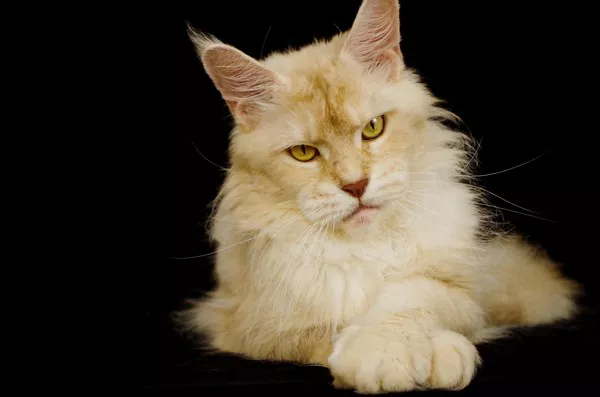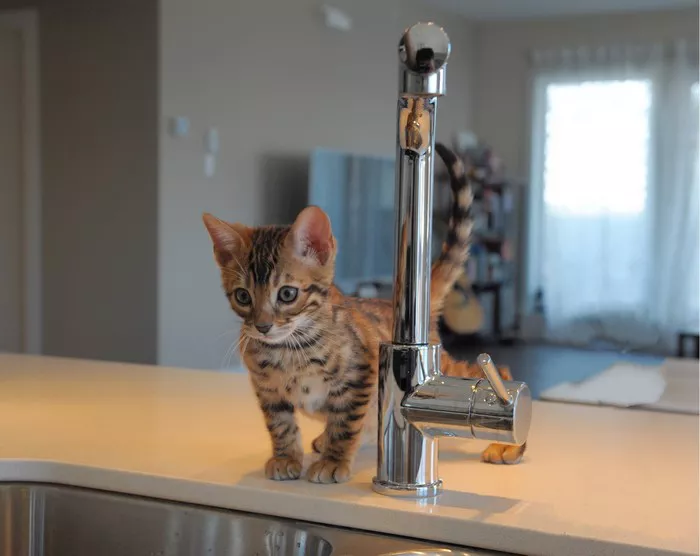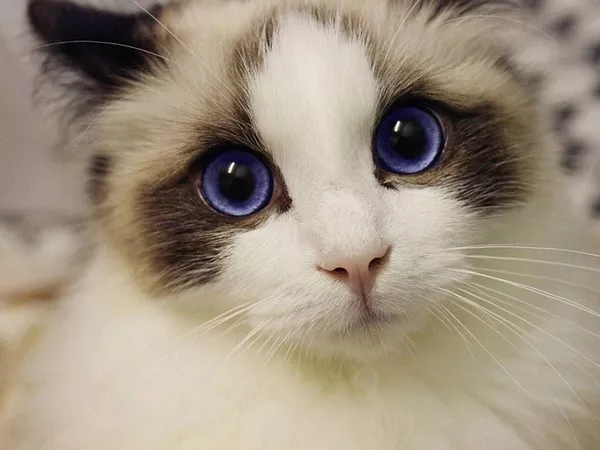Maine Coon cats, renowned for their impressive size, tufted ears, and bushy tails, are a captivating breed that requires thoughtful consideration when it comes to their nutrition. Understanding how much a Maine Coon should eat per day is a crucial aspect of responsible cat ownership. In this comprehensive guide, we delve into the dietary requirements, factors influencing intake, and best practices for ensuring your Maine Coon maintains optimal health through a well-balanced diet.
Maine Coon Cat
Before delving into their dietary needs, it’s essential to appreciate the unique characteristics that define Maine Coon cats. Recognized as one of the largest domestic cat breeds, Maine Coons exhibit the following traits:
Size: Maine Coons are known for their substantial size, with males weighing between 13-18 pounds, and females ranging from 8-12 pounds. Some exceptional individuals may weigh even more.
Coat: The breed features a semi-longhair coat that provides insulation in cold weather. Their bushy tails and tufted ears add to their distinctive appearance.
Personality: Maine Coons are celebrated for their friendly and sociable nature. They often form strong bonds with their owners and get along well with other pets.
Deciphering Dietary Requirements
Understanding how much a Maine Coon should eat involves considering various factors such as age, weight, activity level, and overall health. Customizing their diet to meet these specific needs ensures they receive the nutrients required for optimal growth and well-being.
Age: Maine Coon kittens, being in the growth phase, have different dietary needs than adult cats. A high-quality kitten food rich in essential nutrients is recommended until they reach maturity at around one year of age.
Weight: The weight of your Maine Coon is a crucial factor in determining their daily food intake. Overweight or underweight cats may require adjustments to their diet, guided by a veterinarian’s recommendations.
Activity Level: Maine Coons are known for their playful and active nature. Cats with higher activity levels may require more calories to support their energy expenditure.
Health Considerations: Individual health conditions, such as allergies or sensitivities, may influence dietary choices. Consulting with a veterinarian can help tailor a diet that addresses specific health needs.
Calculating Daily Caloric Intake
While there is no one-size-fits-all answer to how much a Maine Coon should eat, a general guideline for caloric intake can be determined based on factors like age and weight. Adult Maine Coons typically require between 250-350 calories per day, but individual variations exist.
Kitten Stage: Maine Coon kittens, experiencing rapid growth, may need up to 300 calories or more per day, distributed across several small meals.
Adult Stage: Adult Maine Coons generally require around 250-350 calories per day, depending on factors like weight, activity level, and metabolism.
Senior Stage: As cats age, their metabolism may slow down, and their calorie needs may decrease. Senior Maine Coons may benefit from a diet tailored to support aging health.
Choosing the Right Cat Food
Selecting a high-quality cat food that meets the nutritional needs of your Maine Coon is paramount. Look for the following features when choosing cat food:
Protein Content: Maine Coons thrive on a diet rich in high-quality animal protein. Look for cat food where meat is listed as the primary ingredient.
Balanced Nutrition: Ensure the cat food provides a balanced mix of essential nutrients, including vitamins, minerals, and omega-3 fatty acids.
Avoid Fillers: Minimize the inclusion of fillers such as grains and artificial additives. Maine Coons benefit from a diet that closely aligns with their carnivorous nature.
Life Stage Formulation: Opt for cat food formulated for their specific life stage, whether it be kitten, adult, or senior. These formulations cater to the varying nutritional needs at different stages of life.
Feeding Practices and Considerations
In addition to determining the appropriate quantity of food, how you feed your Maine Coon and other feeding considerations play a crucial role in their overall well-being.
Meal Frequency: Maine Coons benefit from multiple small meals throughout the day. This feeding approach aligns with their natural grazing behavior.
Hydration: Ensure your Maine Coon has access to fresh water at all times. Adequate hydration is essential for their overall health.
Monitoring Body Condition: Regularly assess your cat’s body condition to ensure they maintain a healthy weight. Adjust their food intake as needed to prevent obesity or malnutrition.
Veterinary Guidance: Regular veterinary check-ups provide an opportunity to discuss your cat’s dietary needs and make adjustments based on their health status.
Conclusion
In conclusion, deciphering how much a Maine Coon should eat involves a personalized approach that considers their age, weight, activity level, and health status. Providing a well-balanced, high-quality cat food, tailored to their life stage, is foundational to their overall health and vitality.
By understanding the unique characteristics of the Maine Coon breed and implementing sound feeding practices, you can ensure your feline companion thrives throughout their life. Regular veterinary consultations, proper monitoring, and adjustments to their diet as needed contribute to a long and healthy life for your majestic Maine Coon.


























